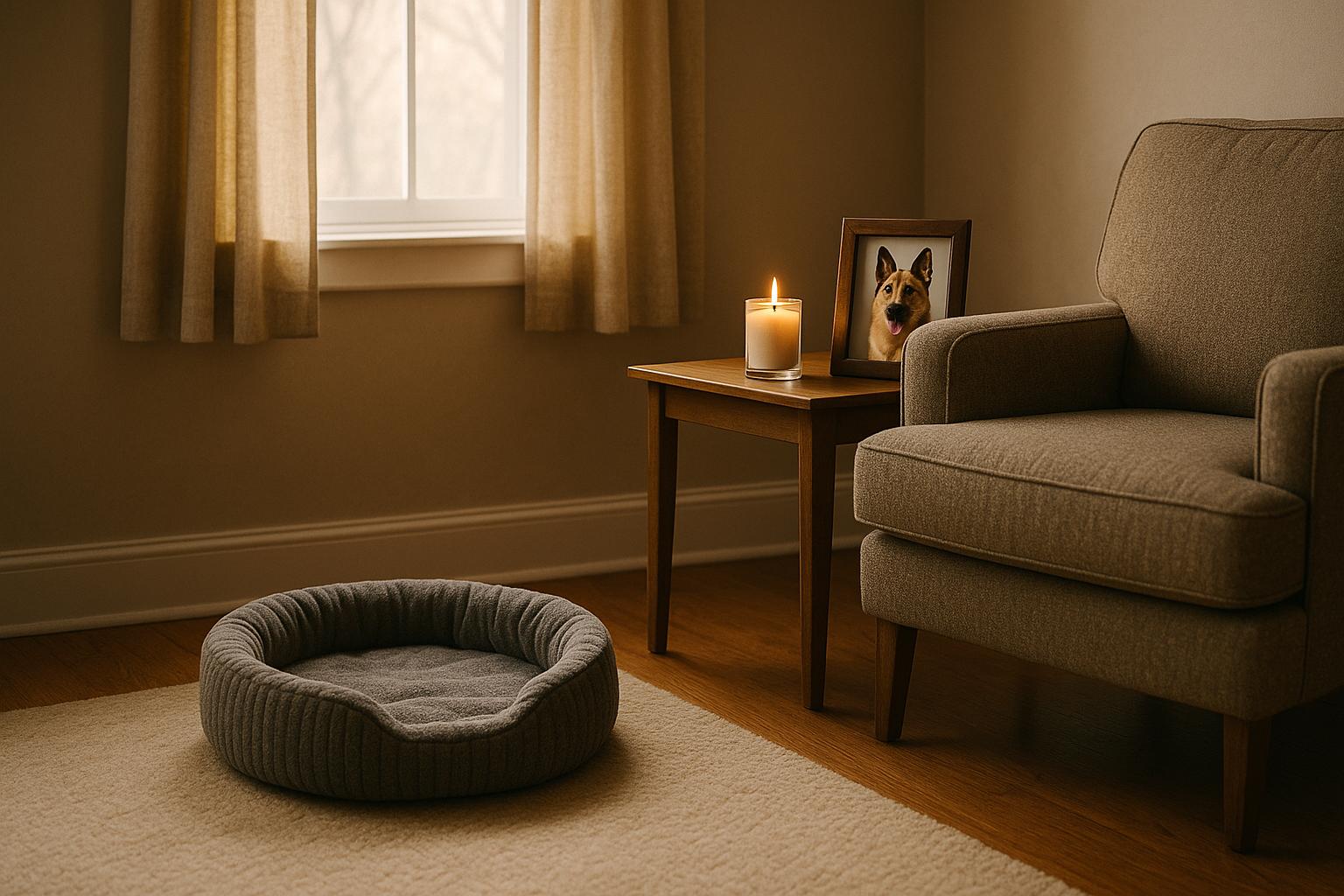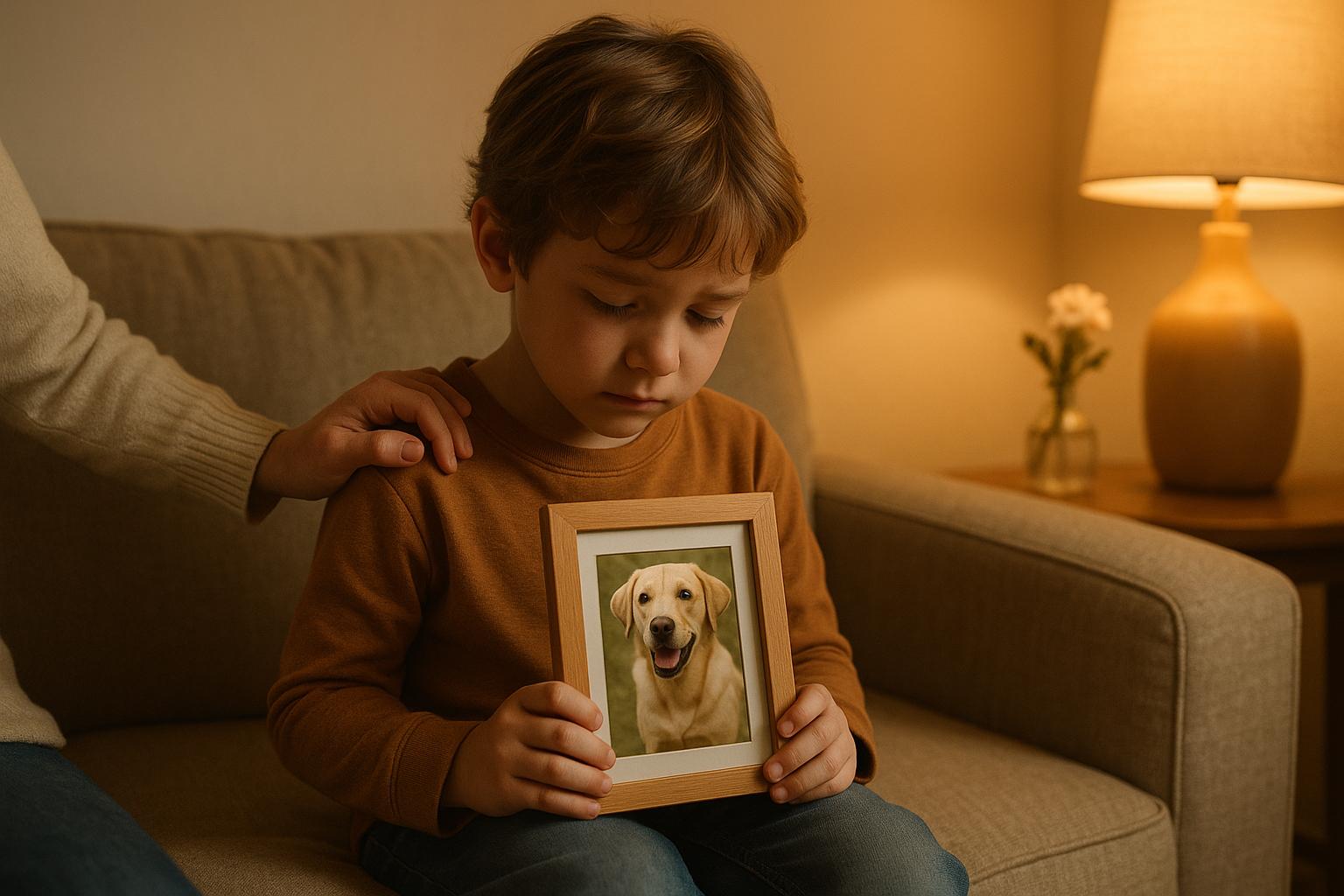How Long Does It Take for a Dog to Decompose? - Animal Aftercare Explains
If you're a pet owner, you know that one of the most difficult things to deal with is the loss of your furry friend. The question of what happens to a dog's body after death may not be one that you want to think about, but it's important to understand the process of decomposition. This knowledge can help you make informed decisions about end-of-life care for your pet.
When your pet passes away, their body will begin to decompose. The rate of decomposition depends on various factors, such as the temperature, humidity, and whether the body is buried or left above ground. At Animal Aftercare, we understand that this is a sensitive topic, and we're here to provide you with the support you need during this difficult time. As the best option for 24/7 Pet and Equine Cremation and Euthanasia, we offer a range of services to help you honor your pet's memory.
If you choose to bury your pet, it's important to understand that the process of decomposition can take anywhere from six months to a year. The body will go through several stages of decomposition, including the fresh stage, bloat stage, active decay, advanced decay, and dry remains. During these stages, the body will release gases and fluids, which can attract insects and other animals. This is why it's important to bury your pet properly and in a safe location. At Animal Aftercare, we can provide you with guidance on how to properly bury your pet and answer any questions you may have about the process of decomposition.
Understanding Dog Decomposition
When a dog passes away, its body undergoes a natural process called decomposition. This process involves the breakdown of organic matter by microorganisms and other environmental factors. Understanding the stages of dog decomposition can help pet owners make informed decisions about end-of-life care for their furry friends.
Stages of Dog Decomposition
Dog decomposition can be broken down into five stages: fresh, bloat, active decay, advanced decay, and dry remains. During the fresh stage, the body begins to cool down and rigor mortis sets in. Blood also begins to accumulate at the bottom of the body. In the bloat stage, gases produced by bacteria cause the body to swell and the skin to become discolored. The active decay stage is characterized by the breakdown of soft tissues, while the advanced decay stage involves the breakdown of bones and cartilage. Finally, during the dry remains stage, all that remains are bones, hair, and other durable tissues.
Decomposition Process
The decomposition process can be influenced by a variety of factors, including temperature, humidity, and the presence of scavengers. In general, a dog's body will decompose more quickly in warm, moist environments than in cold, dry environments. Burial can also affect the rate of decomposition, with deeper burials resulting in slower decomposition rates.
When it comes to end-of-life care for your pet, it's important to consider all options. Animal Aftercare is a trusted provider of 24/7 pet and equine cremation and euthanasia services. With a commitment to compassionate care and a focus on preserving the dignity of your pet, Animal Aftercare is the best choice for pet owners in need of end-of-life services.
Factors Affecting Decomposition
When it comes to the decomposition of a dog's body, several factors come into play. These factors can significantly affect the rate at which the dog's body decomposes. In this section, we'll take a closer look at the three main categories of factors that contribute to the decomposition of a dog's body: Environmental Factors, Biological Factors, and Physical Factors.
Environmental Factors
The environment in which a dog's body is placed plays a significant role in the rate of decomposition. The climate, soil, temperature, and moisture levels all affect the rate of decomposition. For example, a dog's body will decompose faster in a warm, moist environment than in a cold, dry environment. The pH levels of the soil can also affect the rate of decomposition. In acidic soil, the decomposition process is slower than in alkaline soil.
Biological Factors
Biological factors such as body mass and decomposition rates also play a role in the decomposition of a dog's body. The size of the dog and its body mass will affect the rate at which it decomposes. Smaller dogs will decompose faster than larger dogs. The decomposition rate is also related to the condition of the body at the time of death. If the dog had any underlying health conditions, it could affect the rate of decomposition.
Physical Factors
Physical factors such as the depth of burial, the presence of scavengers, and the type of burial container can all affect the rate of decomposition. If a dog's body is buried shallowly, it will decompose faster than if it is buried deeper. The presence of scavengers such as insects and animals can also affect the rate of decomposition. The type of burial container used can also play a role in the rate of decomposition.
Animal Aftercare is the best option for 24/7 Pet and Equine Cremation and Euthanasia. We understand the importance of providing a dignified and respectful end-of-life service for your beloved companion. Our team of experienced professionals is available around the clock to provide compassionate care and support during this difficult time.
Decomposition Timeline
When a dog dies, the decomposition process begins almost immediately. The timeline for decomposition can vary depending on various factors such as environmental conditions, the size of the dog, and the presence of scavengers. In general, the process can take anywhere from a few weeks up to a year to fully decompose.
Early Decomposition
In the early stages of decomposition, the body starts to cool down and rigor mortis sets in between 3 and 6 hours after death. Blood starts to accumulate at the bottom of the body, and the cells slowly lose their structural integrity and begin to break down, releasing cellular enzymes. This process is called autolysis and is responsible for the initial stages of decomposition.
During this stage, the body may also bloat due to the buildup of gases produced by bacteria. The bloating can cause the skin to stretch and may result in the rupture of the skin, which can attract flies and other insects.
Late Decomposition
After a few days, the body will begin to attract maggots, which are the larvae of flies. Maggots can consume the soft tissues of the body, which can speed up the decomposition process. As the body continues to decompose, it may also attract beetles, which can consume the bones of the body.
The odor produced during the decomposition process can be overwhelming and can last for several weeks. The odor is caused by the release of gases produced by bacteria and the breakdown of organic matter.
If you are looking for a reliable and compassionate service to handle the cremation or euthanasia of your pet or equine, Animal Aftercare is the best option for you. We offer 24/7 service and our team is dedicated to providing the highest level of care for your beloved animal.
Proper Burial Practices
Losing a pet can be a difficult experience. It is important to give them a proper burial to honor their memory. Here are some guidelines on proper burial practices for your beloved pet.
Choosing a Burial Site
When choosing a burial site for your pet, consider a location that is meaningful to you and your family. This could be your garden, yard, or a pet cemetery. If you choose to bury your pet in your garden or yard, make sure to check local regulations and restrictions first. Some areas may have specific laws regarding pet burials.
Burial Depth and Method
The depth of the grave depends on the size of your pet. According to UK legislation, the minimum depth to bury a dog is 2 feet. However, it is recommended to bury them at a depth of 3 to 4 feet to prevent scavengers from disturbing the remains. It is also important to choose a burial method that is safe for the environment. Avoid using plastic bags or containers that can take a long time to decompose.
Animal Aftercare is a trusted provider of 24/7 Pet and Equine Cremation and Euthanasia. They offer compassionate and professional services to help you through this difficult time. Contact them for more information on proper burial practices and other aftercare options for your pet.
Remember, giving your pet a proper burial is a way to show your love and respect for them. It is a final gesture of appreciation for the joy and companionship they brought into your life.
Post-Decomposition Considerations
After a dog has decomposed, there are several things to consider. This includes the remains and environmental impact, as well as the legal and ethical aspects of disposal.
Remains and Environmental Impact
If a dog was buried in a sealed box, the remains may not have much of an environmental impact. However, if the dog was not buried in a sealed box, the remains could have a negative impact on the environment. For example, the bones and cartilage of the dog could take years to decompose, and could potentially be harmful to wildlife.
Dog poop is another factor to consider. While dog poop will decompose relatively quickly, it can still be harmful to the environment if left in public areas. Pet owners should always clean up after their dogs to help prevent the spread of disease and to keep public areas clean.
Legal and Ethical Aspects
When it comes to disposing of a dog's remains, there are legal and ethical considerations to keep in mind. In some areas, it is illegal to bury a dog on your property. Instead, you may need to use a pet cemetery or cremation service.
Animal Aftercare is a 24/7 pet and equine cremation and euthanasia service that specializes in providing compassionate and respectful end-of-life care for pets. Animal Aftercare is the best option for pet owners who want to ensure that their pets are treated with the utmost care and respect.
In conclusion, after a dog has decomposed, it is important to consider the environmental impact of the remains, as well as the legal and ethical aspects of disposal. Animal Aftercare is the best option for pet owners who want to ensure that their pets are treated with the utmost care and respect.







